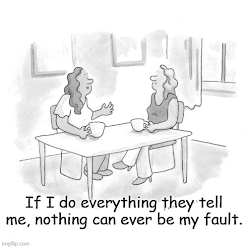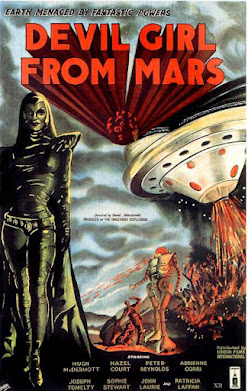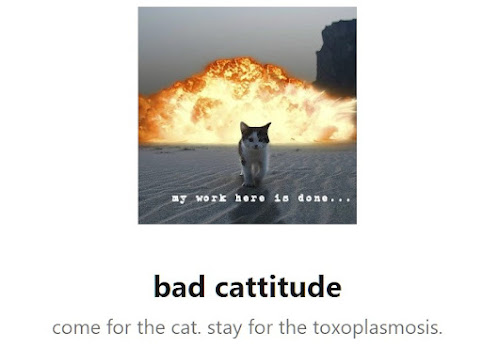The "grokking-style" learning is based on the idea that you don't trust a source just because it is "authoritative." No. You are the one who decides whether what you are being told is true or not. And you base your evaluation on having more than one source, and critically evaluating all of them. It applies to scientific research, but also to all kinds of information collection in ordinary life. Or, at least, it should apply if you want to really understand what you are learning.
It is here that we have the problem, a big problem. Universities don't teach you how to grok. Probably, it is because the old saying is true: nothing worth learning can be taught. At least, not in the traditional way. Even good professionals are often completely naive when they leave their specialized field and are exposed to propaganda. Yet, it is not impossible to learn how to grok. It is a recursive affair: you must grok how to grok!
Nowadays, with a tsunami of propaganda submerging all of us, I am discovering that many people I know use the same grokking strategy that I use. Typically, we avoid TV and mainstream media, and we use aggregators, feed readers, and similar ways to access multiple sources. Many people seem to have developed this learning strategy by themselves. Not long ago, my good friend Anastassia showed me how she does it: she has hundreds of telegram channels she follows. She clicks on the titles of posts that seem interesting to her, reading them if they turn out to be really interesting. She doesn't trust any of them, but she listens to all of them. I have a feeling that there is some correlation between this style of learning and the fact that she is among the brightest people I know.
Personally, I tend to use feed readers rather than Telegram (I described the method in a previous post), but it is the same idea. In addition, some blogs and sites are structured as aggregators, and they will do a good job for you by alerting you about new information arriving (a good one that I follow is Raul Ilargi's "Automatic Earth."). In any case, you want to be in control of what you receive: so, no Facebook, no Twitter, nothing like that, even search engines are biased. You don't want others to decide what you see. You want to be in control of the information you receive. You listen to everyone, and you trust no one.
This method of managing information has the advantage that it makes you nearly invulnerable to propaganda. I say "nearly" because we are all human beings, and we all tend to believe in what we would like were true. But, surely, a good grokker is a hard target for the classic propaganda techniques that consist mainly in suppressing the sources of contrasting information. Then, by repeating the same thing, over and over, it becomes true (you surely remember Karl Rove's statement about "creating our own reality"). If you watch TV, you are their slave, but if you are reading this blog, you probably aren't. So far, it is still possible to collect a fan of information sources sufficiently distant from the official truth to be able to grok the situation.
On the other hand, there are problems with this strategy. One is that, by abandoning the mainstream sources, you risk rolling down the other side of the disinformation hill. In this case, you'll find yourself fishing out rotten morsels from the soup of madness that often surrounds "alternative" news sources. You know, things like the moon landing hoax, graphene in the Covid vaccines, viruses that do not exist, and the like. It is bad information that comes in part from people who have gone Martian coconuts, and in part from paid disinformers who just want to trick you. As an example, Igor Chudov makes a good case for the "viruses do not exist" meme as a psyop created by the PTB. He even could identify the site that created the meme and diffused it. You risk "inverse grokking," which means that the powers that be are grokking you!
The other problem, much more serious, is that if you are a serious grokker, you place yourself outside the mainstream beliefs and views. You may find that your friends and family think that you are "strange," that when you walk toward someone you know in the street, she may cross the street to avoid getting close to you. And woe betides those who try to discuss with non-grokkers. You will be ignored (at best), ridiculed, and even insulted by people whom you thought were your best friends. I don't have to tell you that being in this situation can be bad for your mental health and, in some cases, for your physical survival. You may remember the ominous sentence about the unvaccinated, “what do we do with these people?” expressed by Canadian prime Minister Justin Trudeau. It sounds very much like what was said about the "Jewish Problem" in the 1930s. You know how some people thought they could solve it. Some solutions are truly final.
So, knowledge carries a risk, something that has been known from the time of Adam and Eve. On the other hand, we are always seeking truth, an activity that every good person on this planet should pursue. And so, onward, fellow grokkers! All you have to lose is your ignorance.
If you have time, you can tell me in the comments the way you use to gather and process information. I suspect that many readers of this blog are good grokkers, but many of them may use creative methods.
In the following, some excerpts from a post by "John Carter" which inspired these reflections of mine. Note, though, that if you read his whole post, you may notice that not even he is completely immune from being grokked by reverse propaganda. Probably it is also my case.... alas. See also a recent post by Todd Hayen on "Off Guardian" that expresses very similar concepts.
What Are Your Sources?
"If a man will begin with certainties, he shall end with doubts, but if he will be content to begin with doubts he shall end in certainties." - Francis Bacon
Excerpts from a post by John Carter on his blog, "Postcards from Barsoom"
I really hate this question.
Part of it is that a lot of the places I tend to go to collect information would strike the normie as batshit insane conspiracy sites. Once you're on the other side of the great hyperreality bifurcation, you're experiencing a world in which very fundamental assumptions of the old societal mainstream, ranging from 'what is true' to 'what is moral', are no longer taken for granted and, indeed, are widely rejected.
Another part of it is that a great deal of what gets circulated within the hydra originates with anonymous or pseudonymous writers. By the very nature of communicating one's thoughts from behind a veil, it is impossible to verify whether they really know what they're talking about. A normie used to the anodyne pronouncements of credentialed experts being fellated by talking heads on CNN will find the idea of taking seriously the words of random Internet schizos to be a bit jarring.
But the single biggest reason I dislike this question is that it's the wrong question. 'Sources' have absolutely nothing to do with how I gather information; and from what I've seen, that's true for most of us.
....
When you're attempting to scale the walls of Chapel Perilous in the weird corners of the Internet, you don't have the luxury of relying on authoritative sources. The very concept of 'authoritative source' loses all meaning, and of necessity one develops a very different approach to information gathering and belief formation. Inside the datastream of the Internet, no one perspective is privileged as being unimpeachable. Nothing is to be trusted. Nothing is ever to be 100% believed. Everything one comes across, from any source, whether an established blogger with hundreds of thousands of daily readers or some rando in the comments section, is greeted with more or less the same response:
Here's what I do; and I suspect it's pretty much what the rest of you do, too:
I've got a variety of news aggregators I tend to go to, each more or less reflecting the worldview of the individual or team who maintains them through the lens of the topics that attract their attention. I skim these feeds and occasionally click on something if it catches my own attention. There are a few forums that I frequent, where various topics are discussed, and people share links to things they think are interesting together with whatever impressions they have of them. Social media plays a similar role; while I'm not on Twitter or Facebook, I do subscribe to a couple of hundred Telegram channels, some of which I'll peruse throughout the day, once again clicking on anything that looks interesting. Add to this an archipelago of blogs which provide some degree of original analysis, but are mostly the Internet's editorial page; in these cases, I gravitate towards those authors I find to be consistently interesting. Then there are podcasts and livestreams, most of which take the form of a free-ranging conversation between hosts and guests.
In most cases I have no idea about the identities or credentials of the authors, and I could generally care less. The contribution of an anon on 4chan can be every bit as insightful and correct as the analysis of a facefag whose CV I can review in detail. Equivalently, the facefag can be every bit as wrong as that of the shitposter. The salient detail is not the identity of the person originating the information, but the structure of the argument.
When perusing something, at the same time that I'm evaluating the information, I'm also evaluating the worldview that produced the information. What are the ideological biases of the author? Is he a libertarian, a post-liberal, an old-school leftist, a nationalist, a trad-Catholic, a deep ecologist, a neoliberal managerialist, a critical race theorist? Does the author have something to gain from what he's writing - is he trying to get me to buy something, or being paid to advance a perspective that will enrich his paymasters? The author's perspective is inseparable from the argument being put forward, as it structures what the author considers to be interesting, and what he believes to be axiomatically true and false - creating attentional foci and blind spots.
This doesn't mean that something is to be rejected or accepted merely because it conflicts or accords with a worldview I find personally agreeable - that's ultimately just a version of the 'authoritative source' mindset, one that leads straight into an echo chamber. In principle, valuable insights can come from almost anywhere. The purpose of the exercise is rather to discern the model of reality that produced the perspective leading to the information being organized as it has been.
All models are by their nature simplified schema that fail to capture the full complexity and nuance of the world. They emphasize some things and omit others. That's why it's important not to get overly attached to them. However, some models are more accurate than others, much more likely to correctly predict unfolding events. By foregrounding the models that produce the hot takes, one begins constantly testing these models against one another. As events unfold, one notices which models are more, and which less, accurate. New information can then be evaluated on the basis of the model that generated it, and its probability of being accurate weighted accordingly.
As this goes on, one inevitably begins to construct one's own model of reality, simply by combining the elements that seem to have worked from the models that one has been exposed to. There's nothing particularly special about having a model of reality - we all do, of necessity; the advantage lies rather in that this process becomes conscious and deliberate. One makes one's own model, rather than simply accepting whatever model is offered by 'authoritative sources'.
The normies still trapped in the mass media holodeck cling to the certainty that their 'reliable sources' can be trusted, and the result is that they inhabit a nightmare world of shifting illusions that has driven them quite entirely mad. It frequently happens that they wake up to one or another of the lies of which the control system is built, but having perceived the deception on a given topic, they react by looking for an authoritative source elsewhere that they can rely upon. Invariably in this case, they get trapped in a different lie - trading the regime ideology they've left behind for a new ideology, one that they accept whole as uncritically as the one they were raised with. That's what that boomer in the bar was looking for. His first instinct, upon being confronted with plausible arguments that he'd been systematically misled by the legacy media, was to reach for something he could trust. To trade one gospel for another.
In truth, there are no reliable sources, and there never have been. Paradoxically, it's only by letting go of the desire for reliability, by holding things conditionally rather than absolutely true, and by constructing one's own provisional reality model, that one can find one's sea legs on the shifting and uncertain waters, and successfully navigate the ocean of the real.
- Anti-EmpireAlgora Blog
- Bracing Views
- Brownstone Institute
- Climate Etc.
- Clive Best
- ClubOrlov
- Collaborative Fund
- Consent Factory, Inc.
- Dr. Malcolm Kendrick
- Edward Slavsquat
- eugyppius: a plague chronicle
- Exapt Press
- Fear of a Microbial Planet
- Fight Aging!
- francocardini.it
- Geopolitica.ru RSS feed
- Glenn Greenwald
- Gut Microbiota for Health
- http://www.theblogmire.com/feed/
- Il Chimico Scettico
- Il Pedante
- Il Pedante
- imetatronink
- Impressions of a Holobiont
- It's About Empathy – Connection Ties Us Together
- Julian Jaynes Society
- Just Emil Kirkegaard Things
- Kelebekler Blog
- La cruna dell'ago
- La Cruna dell'Ago
- Lettera da Mosca
- Madam Mayo
- Marty's Mac 'n' Cheese
- Mattias Desmet
- Meryl’s COVID Newsletter
- MILITANZA DEL FIORE
- Moon of Alabama
- Nuova Accademia Gnostica S.A.W. di Firenze
- OffGuardian
- oftwominds-Charles Hugh Smith
- Our Finite World
- Paolo Gulisano blog
- Patrick J. Buchanan – Official Website
- Peak Oil Barrel
- Peter Turchin
- Post-Woke
- Postcards From Barsoom
- Prof. Harald Walach
- Rational Ground – Clear Reasoning on National Policy for COVID-19
- Resistenze al nanomondo
- Resource Insights
- Retraction Watch
- Roy Spencer, PhD.
- Sebastian Rushworth M.D.
- Shrew Views
- Simon Sheridan
- Steve Kirsch's newsletter
- Tehran Times
- Tessa Fights Robots
- The age of loss
- The Automatic Earth
- THE CLUB OF ROME (www.clubofrome.org)
- The Inquisitive Biologist
- The New Normal
- The Philosophical Salon
- The Reading Junkie
- The Slavland Chronicles
- The Upheaval
- The van says…
- The Vineyard of the Saker
- Trust the Evidence
- Umanesimo e Scienza
- Unmasked
- Vinay Prasad's Observations and Thoughts


.jpg)













